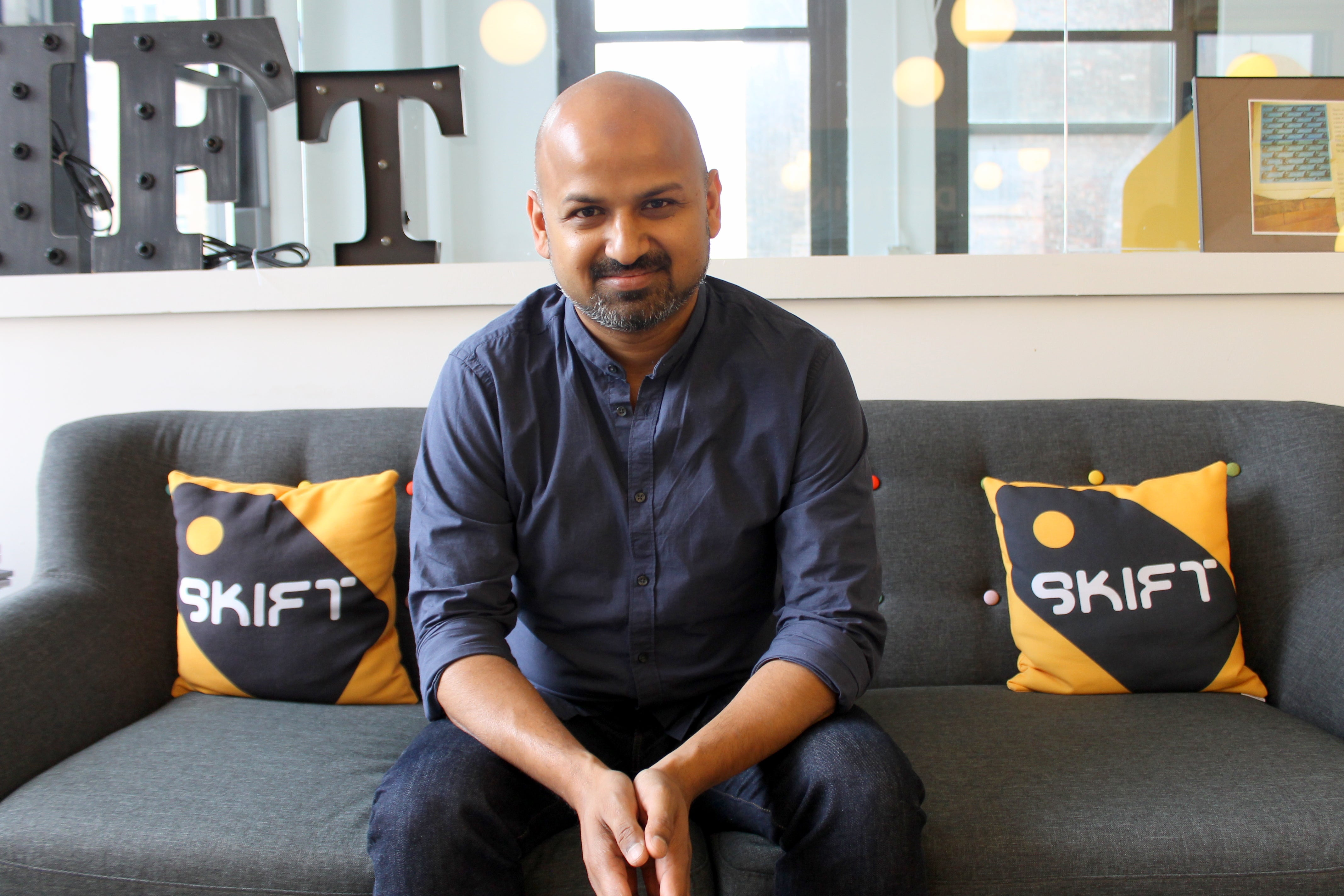
Business information is the area of the media which offers the biggest opportunity for investors according to entrepreneur Rafat Ali.
Former journalist Ali sold the media news website Paidcontent, which he started as a blog in 2002, to the Guardian for an undisclosed fee thought to be in excess of £10m in 2008.
He spoke to Press Gazette as his current company, global travel industry information business Skift, hosts its Skift Forum Europe conference in London on 4 April.
After launching Skift in 2012 he says it is already bigger than Paidcontent was at its peak – with 40 staff and annual revenue which is set to hit $10m “relatively soon”.
Based in New York, Skift makes its money from three evenly split revenue streams:
- Advertising (of which nearly all is branded content)
- Subscriptions
- Live events (or one big annual live event which has now expanded into Europe with next month’s London offshoot).
It is a business model, Ali says, which means Skift is not as concerned about the dominance Google and Facebook as consumer publishers are.
“Everybody is dependant on Google for discovery. We want to be discovered in various different ways,” he says.
But he adds that email is the company’s most important distribution platform. Skift is on Facebook, but (in common with other B2B publishers) this is not a hugely important platform for his business.
Journalism is an important part of the mix for Skift, with 11 full-time journalists who – Ali says – do not necessarily have the “cosy relationship with the trade” which he says has been common in the travel media sector.
Robust journalism is important, says Ali, as is providing sufficient depth of reporting to entice readers to subscribe.
He says: “Editorial is the product and we are building a business around it. Our ambitions in editorial are getting bigger and bigger.”
Recent projects include a 65,000-word multimedia history of online travel and a similar 45,000-word oral history of boutique hotels.
Skift also distributes two issues a year of a glossy high-production-value magazine.
Perhaps surprisingly for someone who is a digital media entrepreneur, Ali says: “Print still matters to create a story around a brand like ours. A lot of people in our industry still value the more lean-back nature of print. Advertisers still like print as well.”
Talking about the opportunities that remain for new digital publishers to disrupt business media, he said: “If I ever became a venture capitalist the area I would focus on is business information, there are so many opportunities in different sectors.”
Four years after Paidcontent was bought by Guardian Media Group it sold the business to a competitor who then closed it.
Asked what lessons he had learned from the experience of his first business, he says: “The main lesson is never sell. I sold in a hurry and got seduced by The Guardian as an editorial brand, I should have done more due diligence on their history of supporting other companies and their history of the business side being in sync with the editorial side.
“Management being on the same page with business values and editorial values is so important.
“When the financial crash happened they were so busy rescuing the mothership that we were ignored completely.”
Email pged@pressgazette.co.uk to point out mistakes, provide story tips or send in a letter for publication on our "Letters Page" blog

